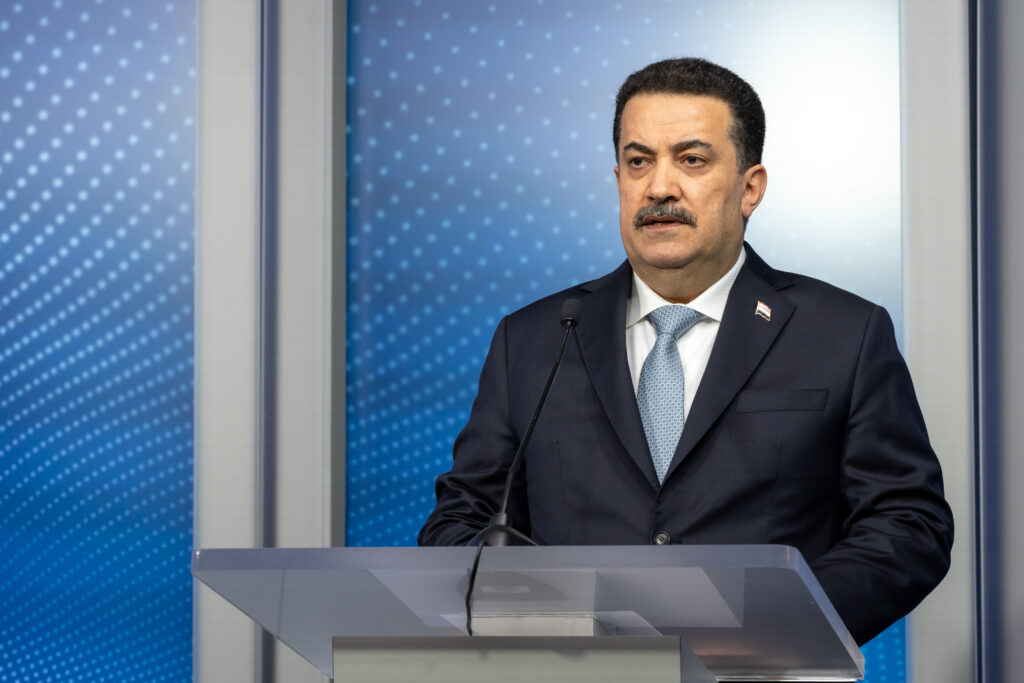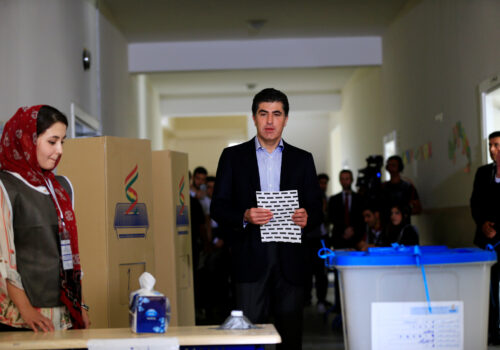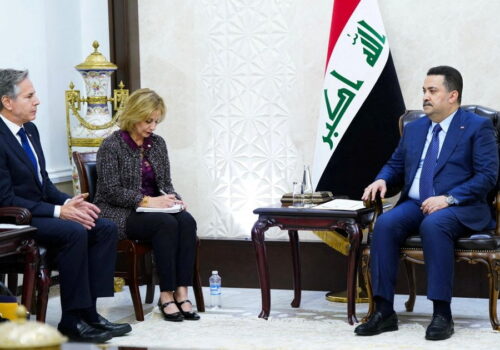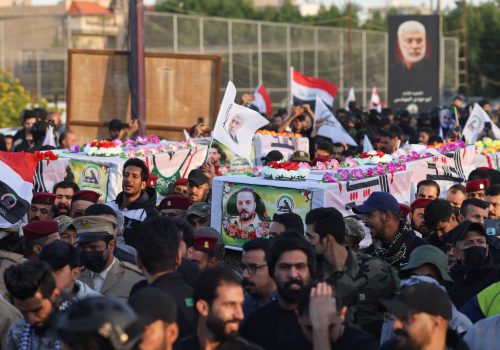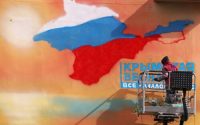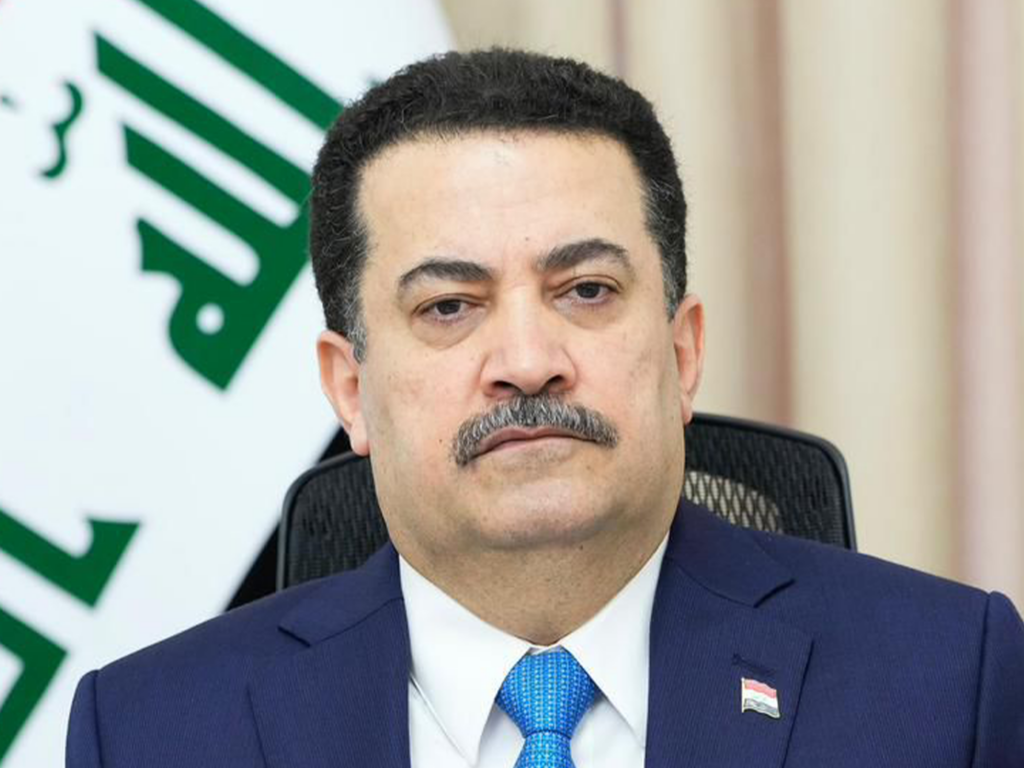
Iraq’s prime minister on how to elevate US-Iraqi relations beyond just security
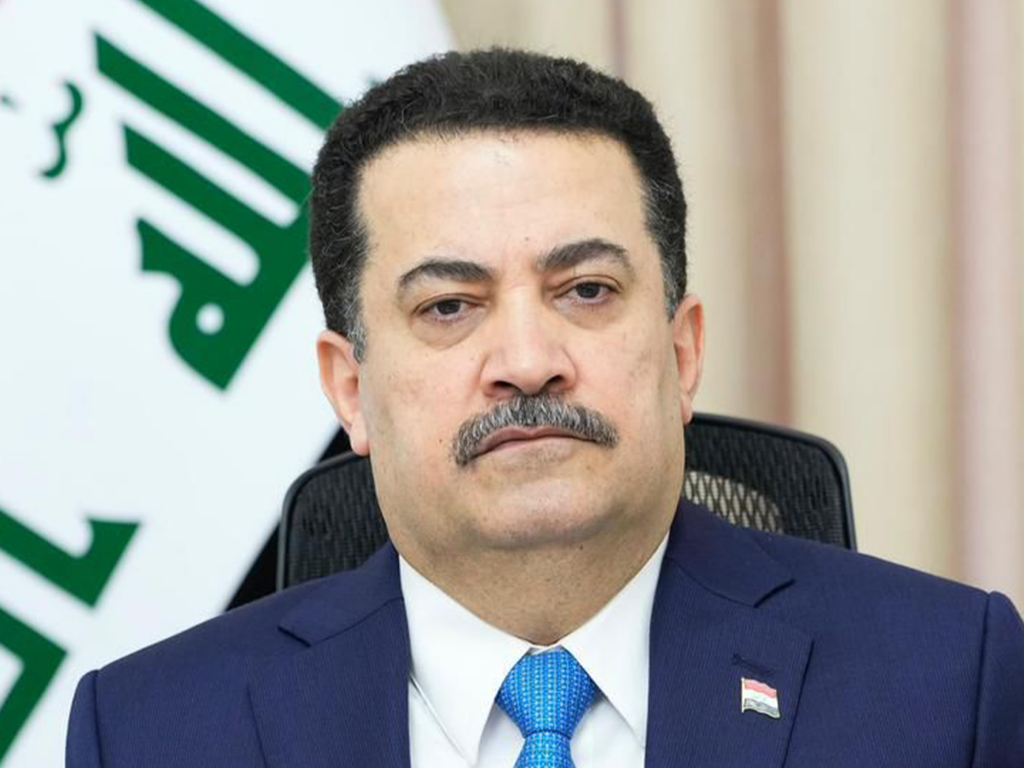
Watch the event
“I came to Washington to open a new chapter in the relationship between Iraq and the United States,” said Iraqi Prime Minister Mohammed Shia’ Al-Sudani at an Atlantic Council Front Page event on April 19.
This new chapter in US-Iraqi relations will entail Washington and Baghdad activating the Strategic Framework Agreement, which he said will encompass the economic, cultural, education, and energy sectors and “move away” from “restricting the relationship to security and military cooperation.”
Sudani outlined the meetings he had had with US officials in Washington last week, including discussions with US President Joe Biden on April 15. The two leaders reached an agreement on the US-Iraqi security dialogue, pledging to follow the US-Iraq Higher Coordinating Committee’s recommendations for updating the two countries’ relations.
“We are looking forward to a more sustainable relation with the United States that rests on mutual interests, reciprocal respect, and fruitful cooperation between our people,” said Sudani.
Below are more highlights from the discussion with Sudani—moderated by Abbas Kadhim, director of the Atlantic Council’s Iraq Initiative—on US-Iraqi relations, Iraq’s diplomacy with Turkey, and the Israel-Hamas war.
US-Iraq relations
- Sudani said his diplomatic goal for his country “is to make Iraq a common ground for cooperation” rather than “a ground for settling scores of the exchange of messages of hostility.”
- The emphasis on military and security cooperation in Iraq’s relations with the United States was “required in certain times in the past,” Sudani said. But, he argued, Iraq is now experiencing “a new reality of adequate security and stability.” He added that Iraqi “security forces today cooperate well with their counterparts in many Arab countries and other partners.”
- In addition to US government officials, Sudani also met last week with “a large number of US companies,” some of which are already operating in Iraq and some “interested in doing business in our country.”
Erdoğan’s Iraq visit
- Turkish President Recep Tayyip Erdoğan’s April 22 trip to Iraq “is not a casual visit,” said Sudani, as the trip comes after years of diplomatic work and preparation.
- On Iraqi-Turkish security issues, Sudani stated: “We do not allow anyone to use Iraqi territories to threaten Turkey, and we will not accept any operations against threats to Turkey without coordination with the Iraqi government.”
- Sudani also said that he and Erdoğan would discuss improving cooperation on water management as well as the “development road” project planned to link an Iraqi port in Basra to Turkey, which Sudani said he expects to be “operational in a short time.”
Regional challenges
- “We all, with the United States in the lead,” said Sudani, need to work toward “ending the war in Gaza immediately and terminating the bloodshed once and for all,” as well as to “create the conditions to form a Palestinian state.”
- Sudani spoke of the need to prevent the Israel-Hamas war from becoming a wider regional conflict, stating that the expansion of the war “will constitute a real threat to international peace and security.”
- Sudani also addressed the case of Elizabeth Tsurkov, the Russian-Israeli researcher who has been held hostage by Kata’ib Hezbollah in Iraq since March 2023. “This is not a case we have abandoned,” Sudani said, adding that Iraq has formed an investigative team and is working with other countries “in order to find her and to take all the culprits in the kidnapping to the justice system.”
Daniel Hojnacki is an assistant editor on the editorial team at the Atlantic Council.
Watch the full event
Further reading
Thu, Apr 18, 2024
The KDP is boycotting the upcoming elections. Iraqi Kurdistan may get stuck in an electoral impasse.
MENASource By Sarkawt Shamsulddin
As the June election deadline looms, the future of Kurdistan’s political stability hangs in the balance.
Sat, Jan 13, 2024
Iraq’s prime minister is sending mixed messages on whether US forces should withdraw or not
MENASource By Abbas Kadhim
It would not be an exaggeration to state that US-Iraqi relations are rapidly approaching the dynamics observed under the Trump administration in 2020.
Wed, Nov 22, 2023
Islamic Resistance in Iraq appears to be responsible for attacks in the country and there’s no end in sight
MENASource By Lizzie Porter
Iraq is witnessing part of the regional fallout from the Israel-Hamas war, and Iraqi bases housing US troops are feeling that most forcefully.
Image: Iraqi Prime Minister Mohammed Shia’ Al-Sudani speaks at an Atlantic Council Front Page event on April 15, 2024.
